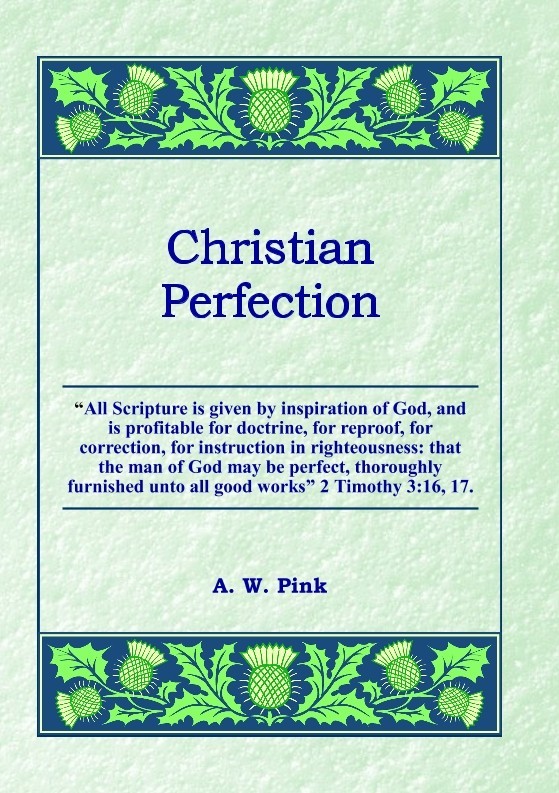
Christian Perfection
By A W Pink
Extract
Christian Perfection
A. W. Pink
I suppose that every Christian has been exercised at some time or other by verses in Scripture containing the word “perfect” or “perfection.” While convinced that those who lay claim to sinless perfection err, yet probably you have not been fully satisfied by any explanation which you have seen of those verses. For example, take such passages as the following: “We speak wisdom among them that are perfect” (1 Cor. 2:6): the Holy Spirit speaking through Paul acknowledges some are “perfect,” and He was referring to those still on earth. “This also we wish, even your perfection” (2 Cor. 13:9): that was the desire and longing of the Apostle for those saints; did he wish for something unattainable, impossible? “All scripture is given by inspiration of God, and is profitable . . . that the man of God may be perfect:” such a verse ought to exercise us. “But the God of all grace . . . make you perfect, stablish, strengthen, settle you” (1 Peter 5:10): this too is while we are on earth. “I have not found thy works perfect before God” (Rev. 3:2), which clearly intimates they ought to have been: the Ephesians were being rebuked because their works were imperfect.
Such verses as the above have puzzled and troubled many. Honest hearts have been exercised as to the exact meaning of the term “perfect” or “perfection.” I want then, to try and give you an outline of the teaching of God’s Word on this important subject. Let us turn next to Job 1:1, “There was a man in the land of Uz, whose name was Job; and that man was perfect.” Yet in 9:20 Job says, “If I justify myself, mine own mouth shall condemn me; if I say, I am perfect, it shall also prove me perverse.” There seems to be a flat contradiction between those two verses. The explanation is simple: the word “perfect” is used in different senses in those two passages. Job 9:20 signifies, If I were to say I am sinless, faultless, absolutely perfect, I should lie. But what is meant in Job 1:1 where God Himself says that he was “a perfect man?” The term there, and in many other passages of the Old Testament means “sincere, honest;” such verses speak of a perfection of …